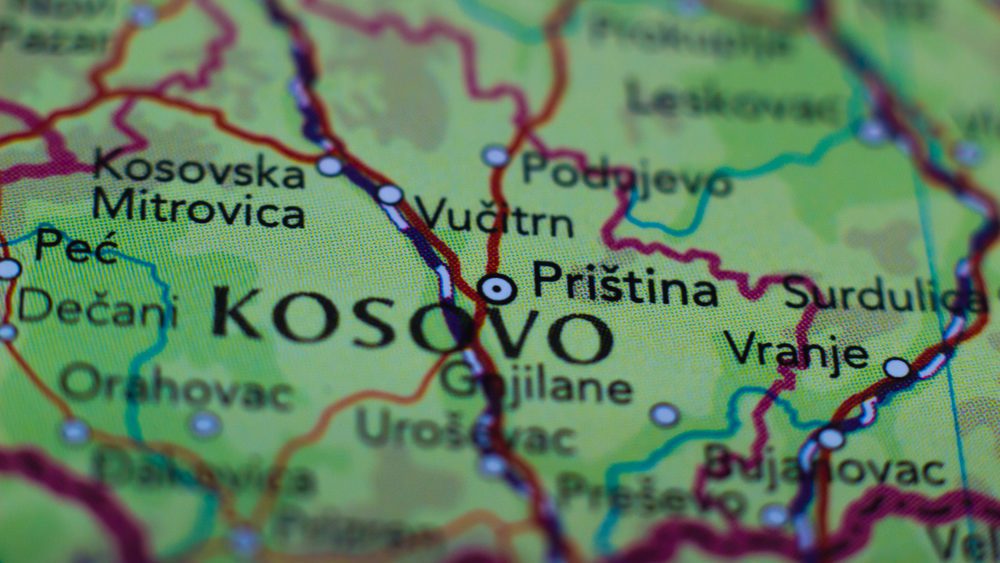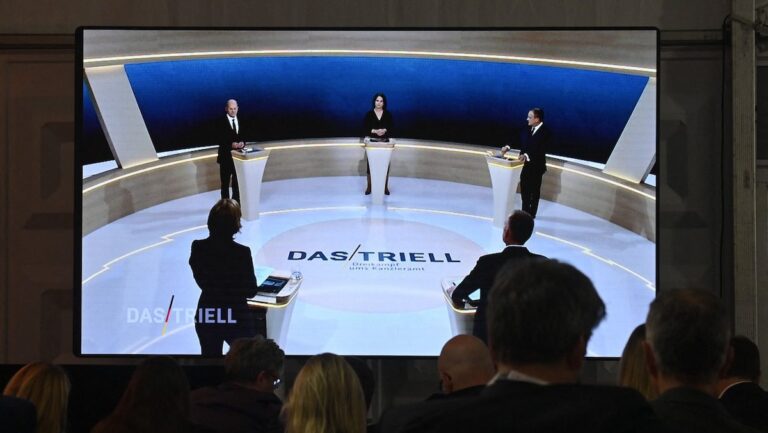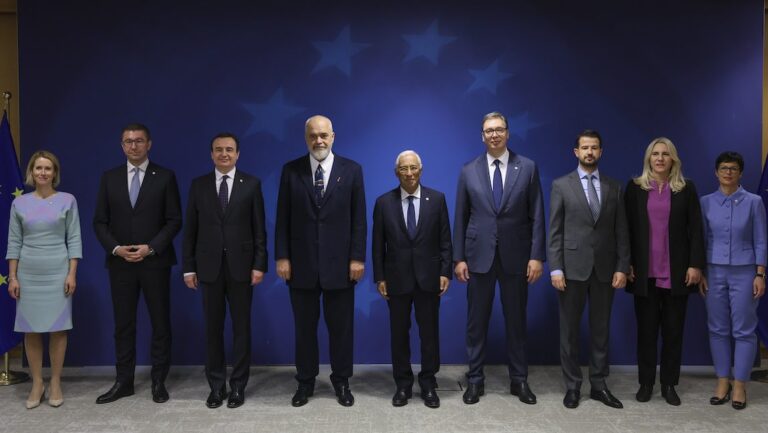For the second day in a row, Serb protesters are blocking main roads in northern Kosovo. Tensions in the region, which houses a considerable Serbian minority with strong nationalist leanings, have been elevated ever since the arrest of a Serb former policeman on Saturday, December 10th.
Hundreds of Serbs again gathered on Sunday morning at roadblocks, consisting of trucks and other heavy-duty vehicles, erected the previous day, bringing all traffic through two border crossings from Kosovo into Serbia to a screeching halt.
The previous night was an eventful one. EULEX, the EU mission in charge of patrolling northern Kosovo, confirmed that that night, a non-lethal stun grenade had been thrown at one of its armored vehicles. EULEX condemned this “unacceptable” attack, as well as the “violent acts perpetrated by armed persons in northern Kosovo, including against the international community.”
In addition, hours after these barricades were in place, ordinary Kosovar police, it was reported, had been fired upon three consecutive times and had to return fire in self-defense.
Many ethnic Serbs in northern Kosovo, where Serbian nationalism exerts a strong influence, view the government in Pristina as distinctly anti-Serbian. Although Kosovo declared independence from Serbia in 2008, Belgrade—along with many ethnic Serbs within Serbia and out— has chosen not to recognize it. Serbs make up about 120,000 of Kosovo’s roughly 1.8 million inhabitants, who are ethnically predominantly Albanian.
Tensions escalated in northern Kosovo after Pristina scheduled local elections for December 18th in Serb-majority municipalities. In response, the main Serbian political party said it would organize to boycott these proceedings. As Kosovo election authorities tried to prepare for the vote earlier this week, explosions and shootings were reported in different locations near the Serbian border.
The Serbian former policeman, Dejan Pantić, was arrested on Saturday for allegedly attacking state offices and election commission offices, as well as police officers and election officials.
He was part of a Serb mass resignation from the Kosovo police force last month after Pristina said it would require Serbs to scrap Serbian license plates which date from before the 1998-99 Kosovo War.
In an attempt to reduce tensions, Kosovo President Vjosa Osmani has decided to postpone elections until April 23rd. Another Kosovar high official, Prime Minister Albin Kurti, accused Serbia of “threatening Kosovo with aggression. We do not want conflict, we want peace and progress, but we will respond to aggression with all the power we have,” he warned on Facebook. He also called upon NATO’s Kosovo Force (KFOR) to remove the barricades “to guarantee the freedom of movement.”
On Sunday evening, Serbian President Aleksandar Vučić convened the National Security Council, Serbian public broadcaster N1 reported. He has called on “Serbs to be calm,” and that “attacks against KFOR and EULEX must not happen.” He has also let it be known that he will ask NATO to allow for the Serbian army’s deployment in the north of Kosovo to see to it that the rights of Serbs living there are being respected.
Belgrade’s right to station Serbian troops in Kosovo is based on a 1999 UN Security Council resolution. It states that up to 1,000 military, police, and customs officers can be deployed in strategic locations such as Orthodox Christian shrines and border crossings.
The granting of this request might hit a snag, however; since the resolution was passed before a good portion of the international community recognized Kosovo’s independence, expectations are low that Vučić’s request will be granted—a reality he has himself acknowledged.
While still unconfirmed by any official sources, online reports are circulating that Serbian Regular Army and Special Forces are already gathering near the Northern Kosovo Border.
There are reports that Serbian Regular Army and Special Forces are amassing near the Northern Kosovo Border where there have been Claims within the last hour that fighting has erupted. pic.twitter.com/ZagxfSmegj
— OSINTdefender (@sentdefender) December 11, 2022
NATO has 4,000 peacekeepers in deployment in Kosovo under a UN Security Council mandate.
At present, Kosovo and Serbia are holding diplomatic talks in Brussels to nip the prospect of further violence—which might engulf much of that troubled region—in the bud.





